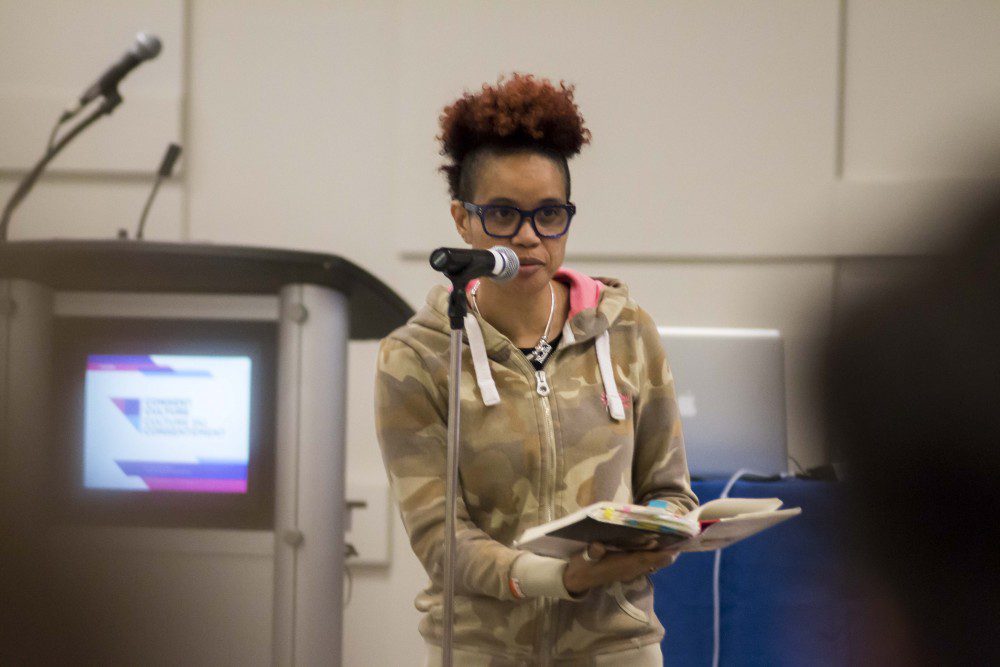Staceyann Chin remembered how she was violated.
“(He) pushes me against and wall and slides his hand all the way up in my dress. I’m so shocked that I can’t move my mouth to say anything,” recalled Chin, reciting from her memoir, The Other Side of Paradise.
Because she was a child at the time, Chin said, her accusation was never taken seriously.
The statement resonated with her audience, about 70 student delegates at the Consent Culture forum to end sexual violence on campus. The two-day forum is hosted by the Canadian Federation of Students in Ottawa.
Chin, an LGBTQ rights political activist, encouraged delegates to speak up and contribute to the discussion of consent culture. She said remaining silent would have serious consequences.
“You will lose your ability to seek your own happiness, and your own decision-making process, and knowing that your voice matters,” Chin said.
She urged delegates to find the “voice of consent culture.”
“You really have to make sure the people around you … are in alliance with you, with your body politics,” Chin said.
She said it can be a “ridiculously unsexy conversation,” but a crucial one to have.
Jessica McCormick, national chair of the Canadian Federation of Students, has high expectations for the forum.
“There is so much more visibility,” she said. “We have to try to use this opportunity to put some pressure on people to actually start making a change.”
McCormick hopes this forum will lead to tangible policy-making.
“By the end of the forum, we’re going to talk about what our goals are for the policies, support services on-campus and (in) education,” she said.
Before participants are expected to share ideas of solutions to the violence, McCormick felt the forum needed to come to a uniform understanding of a definition of consent.
“It’s such a broad context,” she said. “Sexual violence and rape culture means something different to different people.”
Besides suggesting changes to their schools’ current sexual violence policies, delegates will also have the chance to learn what other colleges and universities are doing to address the problem.
Brittany Skelton, a delegate from University of Guelph, said her university has a “fairly comprehensive policy.”
Skelton believed the keys to constructing an appropriate policy are: listening to the different voices of experience, (predominantly of survivors) and ensuring policies are renewed annually.
“Silence is the enemy of consent,” keynote speaker Chin said.



This is a great start. There are men out there who are predators. They grope and harass women even after refusing consent.